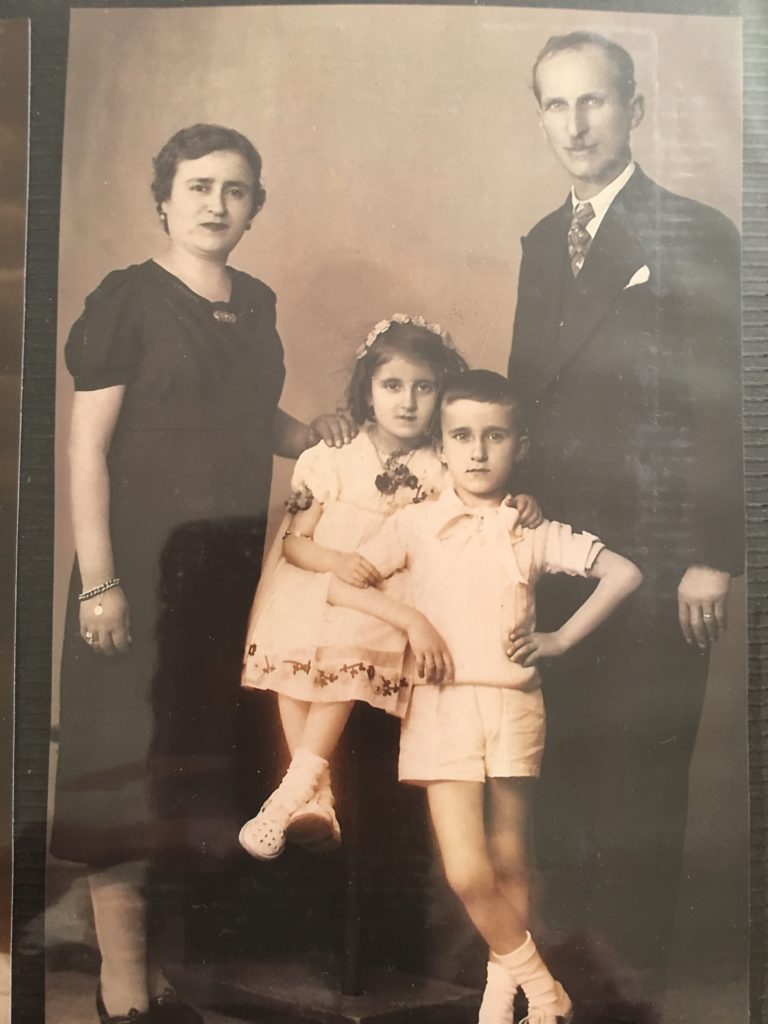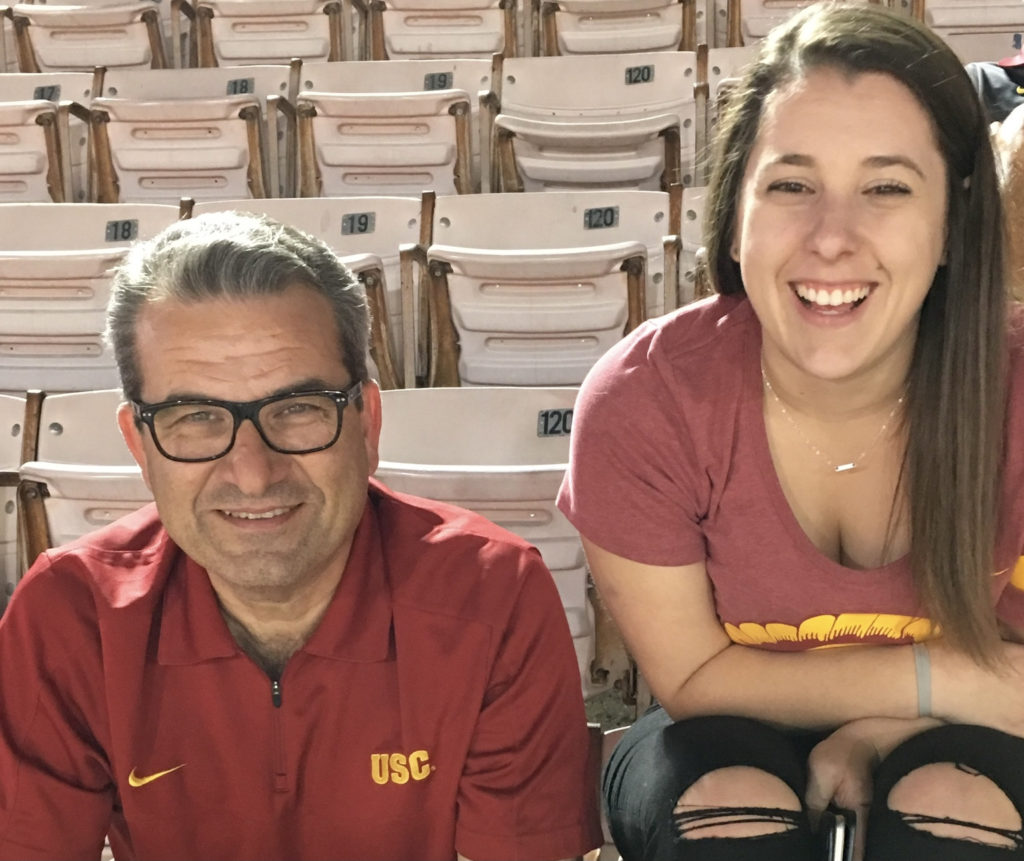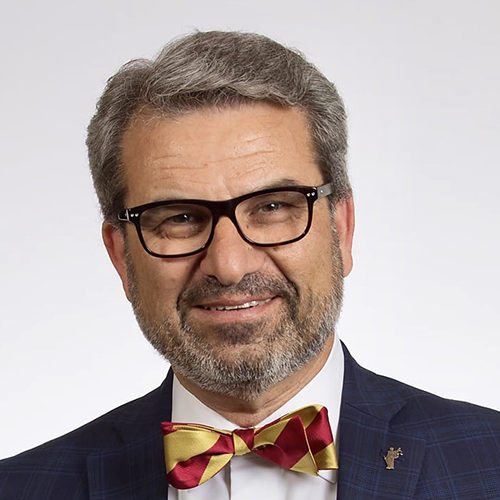Share This Article
“The greatest glory in living lies not in never falling, but in rising every time we fall.”
Nelson Mandela
On this International Women’s Day, I celebrate all resilient women. I dedicate this blog post to my grandmother and my daughter, who make every day meaningful for entirely different reasons.
My grandmother’s story
My paternal grandmother (Agavni-Dove) was the last to survive in my lifetime. She died in my first year of Law School. I never knew my two grandfathers, who had succumbed to the pain and suffering of an era when men were inhumane to others because of who they were. All of my grandparents are survivors of the Armenian Genocide of 1915. I have often said and written that I rise from the ashes of Genocide to live as proof that perpetrators failed. My maternal grandmother died when I was five years old in Istanbul, Turkey. She was the daughter and granddaughter of two prominent families with ties to the sultanate as jewelers, architects, and engineers. My grandmother Luisa was of unlimited wealth and privilege living in a palace as a child but surviving in complete poverty as an adult post-genocide.

Our story
My cousin, a pediatric cardiologist, and I benefit from the wisdom of our grandmother (in his case, maternal grandmother) Agavni’s knowledge and survival skills. At age 10, while in elementary school, my grandmother, her mother, and two sisters were forcibly evacuated from their homes to march into the Der Zor desert to die. They were separated from their mother during the journey, but the three sisters, ages 8, 10, and 12, survived together. They lived as a direct result of the kindness of a Turkish family, who had the humanity to shelter them. In all of my public speeches on the topic, I acknowledge the memory of this family, whom I have never known to thank. I continue to applaud their courage and ability to rise above hate to help these three young girls of different faith and race. The applications of this human gesture are still relevant today.
On this journey, my grandmother lost one eye. While she was blind in one eye, her vision and strength carried us all in the matriarchy she established for the family that ultimately produced a lawyer, a medical doctor, and a theologian in my other cousin, who happens to be a priest. While her physical disabilities challenged my grandmother to read her primary language for more reasons than one, her teachings were second to none.
Our lessons learned
It took us years to master leadership and resiliency skills, including doctoral-level education for all of her grandchildren. Still, one thing is sure that we learned survival and resiliency from this woman who had seen so much. Resiliency, she said, is being able to adapt to life’s misfortunes. While she refused to speak about the details of the horror she had witnessed, she never stopped. My grandmother refused to be a victim. She showed us the effect of positive relationships and unconditional love. Grandmother made sure we understood the blessings of life and the abundance of what we had in our modern era.
Grandmother pushed us to learn from experience and always to remain hopeful and thankful for what we had. My cousin and I remember our scolding for daring to eat an olive in one bite. And that, without a piece of bread as a filler for hunger. You see, on her death march journey, her mother gave each child eight pieces of olive which they had to bite eight times, accompanied each time with a sliver of bread also apportioned among the rest of the family. This food was their daily sustenance. That eating habit is what she knew and what she practiced. The lesson never left us.
My grandmother was tough as a nail. She had no time or use for diplomacy. She called it as she saw it. My grandmother knew what needed to be done, and she got it done. We were her pride and joy. Perhaps it was not surprising in retrospect that she was the only grandparent I knew as an adult. She was a survivor.
Survival and Resilience
Today my grandmother’s story is a textbook definition of survival and resiliency. The literature supports that healthy relationships can provide the needed support and acceptance in good and bad times. That setting goals and accomplishing them gives us purpose every day. The importance of critical skills learned through experience makes us hopeful and proactive to recover from significant setbacks.

My daughter
This story brings me to my American-born children. We are blessed with an amazing son and daughter, who are thoughtful and productive young Trojan adults today. Their life experiences do not even come close to the pain and suffering their ancestors endured. However, their resilience in their competitive milieu is still impressive.
I focus on my daughter as I celebrate her today. I appreciate her resilience through setbacks of injuries as a student-athlete in high school. Her dreams of competing at the collegiate level were shattered pretty much in her junior year in high school. She spoke about that experience in her college admission essays. She even predicted that instead of excelling on the field of play, she will demand equity for women still playing on that field. Today she is a lawyer always focused on human rights, justice, and equity for women. Instead of speaking for her, I will let her published law review article entitled “Time’s Up: Addressing Gender-Based Wage Discrimination in Professional Sports” set the stage for my pride as a father. Enjoy! Happy International Women’s Day!

Frank V. Zerunyan is a Professor of the Practice of Governance at the University of Southern California (USC) Sol Price School of Public Policy (USC Price) and Director of Executive Education at USC Price Bedrosian Center on Governance. Professor Zerunyan oversees USC’s Reserve Officers’ Training Corps (ROTC) as the Director and University Liaison for the U.S. Air Force, Army, Naval Reserves ROTC, and Nautical Science Programs.
Professor Zerunyan’s principal areas of expertise include governance, public-private partnerships, civic and ethical leadership, land use, medical regulation, negotiation, and executive education. He lectures locally and globally to build capacity and foster leadership among public executives worldwide. He is the author of books, book chapters, and many short articles published nationally, internationally, and on USC Price’s “Faculty Perspectives.” Professor Zerunyan is often quoted in the media and is a USC resource for journalists as an expert in governance and leadership. He is also an expert on public administration at the United Nations Innovation Branch (formerly Capacity Building Branch).
For his influential advisory role in the Republic of Armenia, he was awarded LL.D. Doctor of Laws – Honoris Causa by the Public Administration Academy of the Republic of Armenia. Professor Zerunyan designs curricula and teaches at the American University in Armenia, Yerevan State University, and the Vazgen Sargsyan Military University in Armenia, with an honorary rank of colonel. He also teaches for the U.S. Navy at the U.S. Naval Service Training Command.
Professor Zerunyan serves on the editorial boards of the Public Administration Scientific Journal for the Republic of Armenia and the Ukrainian Law Review. He is on the board of councilors of Anahuac University Law School, Xalapa, Mexico (Consejo Consultivo de la Escuela de Derecho).
Professor Zerunyan earned his Doctor of Jurisprudence (Doctor of Laws) degree from Western State University College of Law and his Bachelor of Arts degree from California State University Long Beach. He also completed his advanced legal education in Corporate Taxation at the University of Southern California Law Center (USC Gould). He is a graduate of the California League of Cities’ Civic Leadership Institute.
Professor Zerunyan, trained and practiced as a lawyer, is a four-term Mayor and Councilmember in the City of Rolling Hills Estates, California. He serves on several city, county, and regional policy boards and committees. He was also a gubernatorial appointee under Governor Schwarzenegger, serving 38 million medical consumers on the Medical Board of California.

